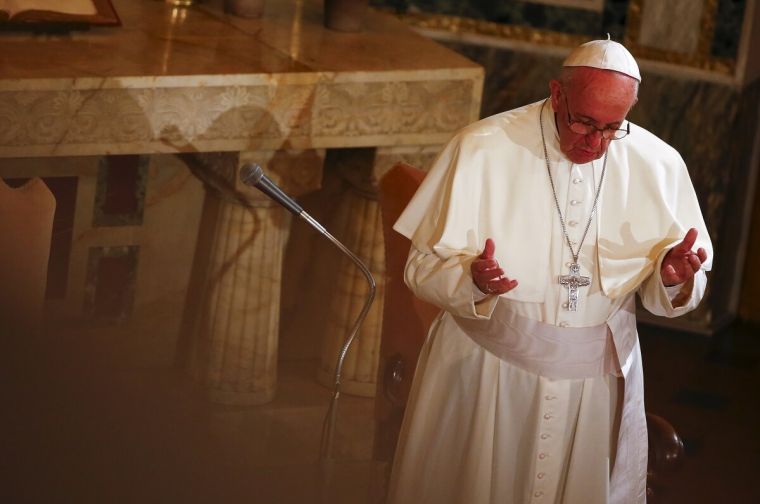Why the Pope's endorsement of prayer is both empowering and challenging

Pope Francis yesterday said that it is the prayer of the saints that carries the Church, not the decisions of popes, bishops or priests.
During morning Mass at the Casa Santa Marta, the Pope preached on the power of prayer in the context of the story of Hannah, a woman who prayed tearfully before God for children.
In the story from 1 Samuel, Hannah weeps, deeply distressed by her infertility, and prays to the Lord to give her a child. Eli, a priest, looks at her from afar, interprets her silent prayers as drunken babble and then rebukes her for drinking wine. She corrects him, to which he responds humbly, granting her peace and asking God to grant her what she has asked of him. That night, Hannah becomes pregnant with Samuel.
"It's the prayer of the faithful that brings change to the Church," Pope Francis said during a reflection of this passage. "It is not us – popes, bishops or priests – who carry the Church forward, but the saints. Saints are those who dare to believe that God is the Lord and that he can do everything."
The idea of the shared and equal authority of every believer in prayer may initially seem at odds with the hierarchical nature of the Catholic church, particularly coming from the Pope. But Francis is here reminding his Church that although certain rites are reserved for the ordained, like presiding at the Eucharist, prayer is both the right and duty of every believer.
Before Jesus' death and resurrection, priests acted as mediators between God and people. With Jesus' coming this radically changed. He is the supreme "high priest" (Hebrews 4.14-16) and the only mediator between us and God (1 Timothy 2.5).
This might seem obvious, but the reality is that our Church and society do not always reflect it.
Many Christians are used to deferring our spiritual opinions, decisions and actions to our priest, vicar, or pastor.
The Pope is saying that independent of your position in Church or society, those who believe in the Lordship of Jesus Christ are empowered with his authority to pray. We don't need a priest to represent us to God; we get to engage with him ourselves.
Ordination is not the qualification – belief in Jesus' Lordship is.
This is the great equaliser of the Christian faith – both empowering and humbling – that we are each equally able to pray to the extent that we admit our dependence upon God.
This concept flips the popular western idea of individualism and independence on its head, while somehow managing to empower us. It teaches a radical dependence, where we can't gain a qualification that automatically gives us authority. It's not about earning our stripes out of our own strength, becoming the best, most self-sufficient human we can be, or being "successful". No, with God it's not about how good we are at all. It's about how good he is, and our choice to "dare to believe" that he is Lord.
It is this that makes our faith powerful. Knowing that our God is a God who can do all things, and that Jesus Christ – the high priest – is interceding for us, we can pray with confidence.
As Pope Francis said last week, in his homily at a Mass celebrating Epiphany, it is not about us and our abilities, but about Christ, his light, and our ability to reflect that light: "Christ is the true light that brightens; and to the extent that the Church remains anchored to him, to the extent that it lets itself be illuminated by him, it is able to illuminate the lives of individuals and peoples."











